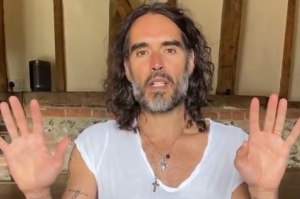Interview: Samuel Hershey on Discipleship
In recent years, discipleship has become a buzz word with churches, and leaders are looking left and right for the right model for their own church.
In recent years, discipleship has become a buzz word with churches, and leaders are looking left and right for the right model for their own church.
The Navigators has been known for one-on-one discipleship since the organization was founded in the 1930s, when Founder Dawson Trotman began teaching the Bible to high school students and later sailors in the U.S. Navy, individually.
As churches saw the success rate of the one-on-one discipleship process whose goal was to evangelize and disciple missionaries, they wanted a process just for them. Out of that was born the Church Discipleship Ministry.
The Christian Post interviewed Navigator Samuel Hershey, who is a part of the Leadership Team in the Church Discipleship Ministry, about how and why the process works for churches.
The following are excerpts taken from the interview:
How does it begin?
It really began with a tool called the 2-7 series, based on Colossians 2:7. It's still a classic disciple-making tool used worldwide. Church leaders came to the Navigators and asked for help. “Help us do for churches what you do on the campus.”
Today we have over 100 staff ministering throughout the U.S.
What is that tool and how does it work?
It's a process, a very flexible process because each church is unique. We help each church develop a foundation. We found that it's absolutely essential to have prayer, teaming, and assessment before anything else. Prayer is founded on listening to God, teaming is listening to one another's leaders, and assessing is listening to our people.
We have to lay this foundation first. It gets us aligned with God, and it gets leaders working out their kinks with each other, and takes an honest look at what's really going on with the people.
Then we move into the area of mission and helping them with Bible study and drawing out their past experiences. The outcome of this is always a realignment with the Great Commission.
You see, in most churches, the church leadership gets bombarded with members' need, rather than being missional. We help to bring the pendulum back to the side of mission and get them excited about leading people to Christ.
It helps them to develop what we call an environment for disciple making. You can take a great healthy plant, take it to the wrong environment and it's going to die. It's going to shrivel.
Then, we look at whole church discipleship making in the context of mission.
Everyone has to be part of that. We help congregants develop ownership of the church and its members. We come in to counsel a church through the process
How do they disciple their congregants then?
We help them define what spiritual maturity looks like after going through training with the leadership. What does it look like for a man or a woman? Often the youth minister will define this as well. If you don’t know what your target is, how will you know if you've hit it? We develop a process for them to hit it.
Then, outreach. We help them develop a comprehensive approach to outreach –cultivating, sewing, and using other avenues.
Then we move to the area of leadership after outreach. Leadership again helps them to define what a spiritually mature leader looks like. We have yet to find a church that has real leaders.
There are also small groups and life-to-life or core groups. These are the delivery components to develop quality community in the church. Truth needs to be processed in the context of community and then the assimilation is much higher because you're processing it with others. We're designed to process truths in an affirming community.
Life-to-life is sharing with others out of your walk with God, as opposed to just receiving information. When truth is shared out of the life, people relate to it. It makes sense and it becomes organic, as opposed to getting lectured with information. Any leader should be involved in sharing out of their life.
What makes this process successful as opposed to the myriad of programs?
People are objecting to a linear type program where it's sort of one-sized fits all, but we're finding a flexible process that they do relate to. It's church coaching. It's uniquely tailored to each church. There's no template that gets stamped on anybody. So it takes a while to develop this – 18 sessions, which usually lasts 18 months.
In the last two years, 4,000 churches have become involved in this process, since the 1960s, the figure is close to 25,000 churches involved.
How hard is it to get a church to change and go through this new process?
The need to change is the big challenge. They've got traditions going. We have to work with that very carefully. The Holy Spirit must work in people's lives and then real change can come out of that. The most challenging area is the patience it takes to wait.
How does the congregation get into discipleship when there are no people to lead them?
Well, we begin with the leadership and so we begin the discipling process with their current leaders, which we find is so critical because as Paul said, in 1 Thessalonians, Paul and his team modeled their life in front of the Thessalonians, who then begin to model that to others.
The Navigators meet with the leaders month after month. We have a bible reading highlight sharing time. It's personal and in-depth.
It has to begin with the church leadership and as they begin to be modeled, it quickly turns to the congregation.
We use something called disciple-making threes. It's smaller than a small group. It also focuses on gender, pairing men with men. There's so much that gets accomplished in a triad, where you have one leader and two participants. It avoids a lot of problems that came up in the past in one-on-one settings. It's a lot safer, and yet you're able to get deep relationships and confidence formed quickly.
We also keep journals, and live video exercises and survival exercises. The games assess the level of teamwork, and help the church develop it more.
We’ve got to involve everybody in the church, where every ministry of the church is contributing to this profile – from choirs to ushers. Every facet of church life contributes strategically and then the disciples thrive. It becomes normative.





























